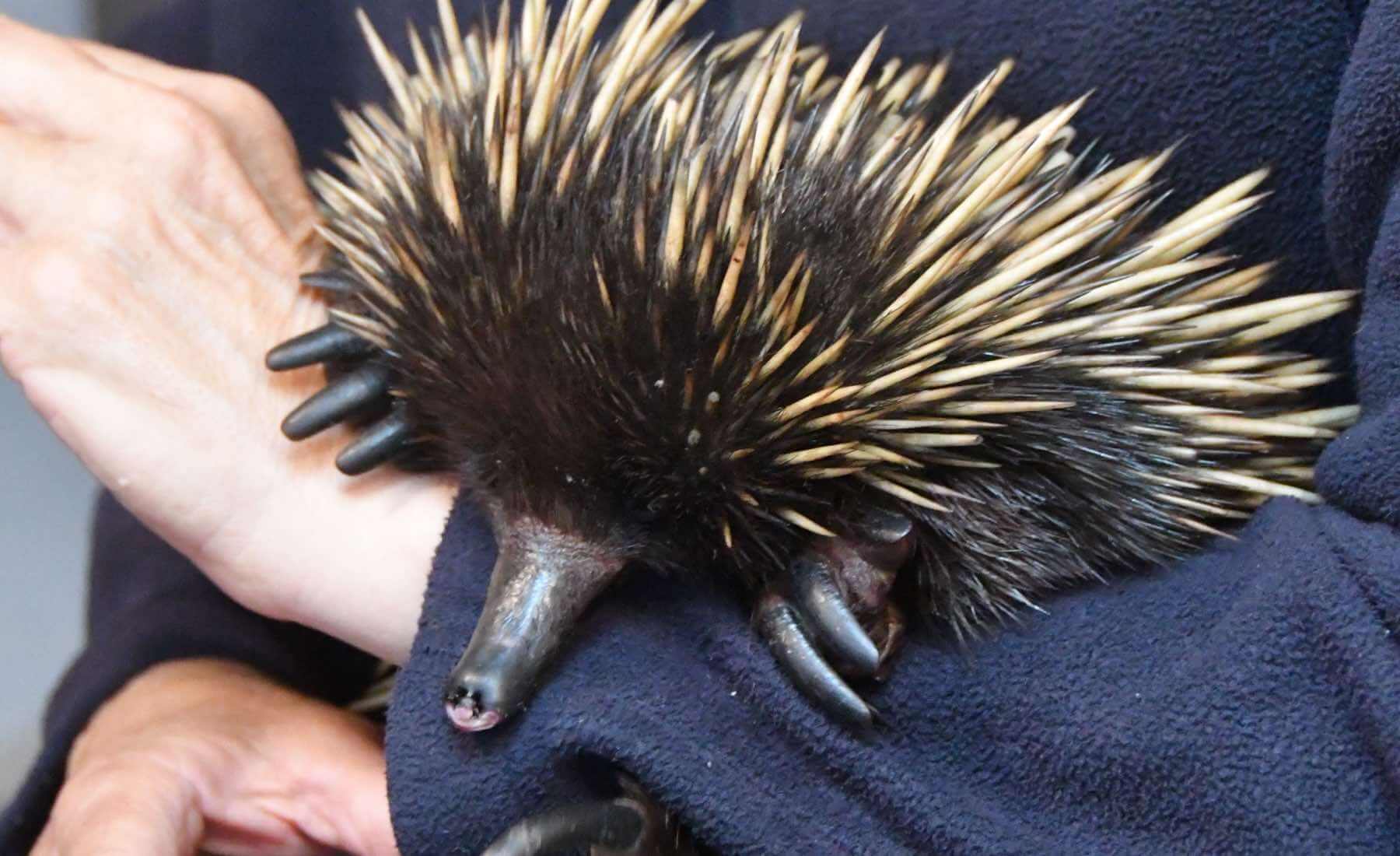
Echidnas are one of two monotremes in the world, which means they are both a mammal but lay eggs. They are small mammals that use their long snouts and tongues to dig up ants and to reach termites in their mounds. Echidnas have an extremely keen sense of smell that they use to detect mates, danger, and to find their puggles in burrows. If an echidna is displaced, the scent trail it leaves back to its burrow can be lost and the young will not survive. It is imperative that an echidna is not forcibly moved or removed unless it needs help.
Echidnas often receive injuries when trying to cross a road or coming across domestic pets when making their way through backyards. An injured echidna on the road needs to be picked up with a towel or the rubber floor mat in your car which are ideal to hold an echidna safely. If you see an echidna crossing a road, try to alert on-coming traffic by flashing your lights or putting on your hazard blinking lights. If safe to do so, pick the echidna up and move it to the side of the road it was going towards, a little way back from traffic.
• If you find an injured echidna, you can pick up as above and contain in a bucket or closed box. Take to a vet or contact the local wildlife group immediately.
• DO NOT provide artificial heat as suggested for other animals. Echidnas have a naturally low body heat and cool is the rule!
• If you have an echidna in your yard, it is usually just passing through. Unless it is in immediate danger, allow it to go on its way. Bring domestic pets inside to allow the animal to move on.
• Never remove an echidna from its territory unless it’s in immediate danger. You may be taking a mother away from her burrow with young dependent on her.
• Do not attempt to give the animal any food or water.
• In the unlikely event that a young puggle is found, it will need immediate and specialised care. They need to be kept cool and protected from the sun at all times.
• They can only be transported during the early morning or late evening when the temperature has dropped, otherwise the high heat can prove fatal.
• Call the relevant group as soon as possible and follow their advice until a rescue can be organised. In the meantime, keep in a dark and ventialted box in a quiet environment.


